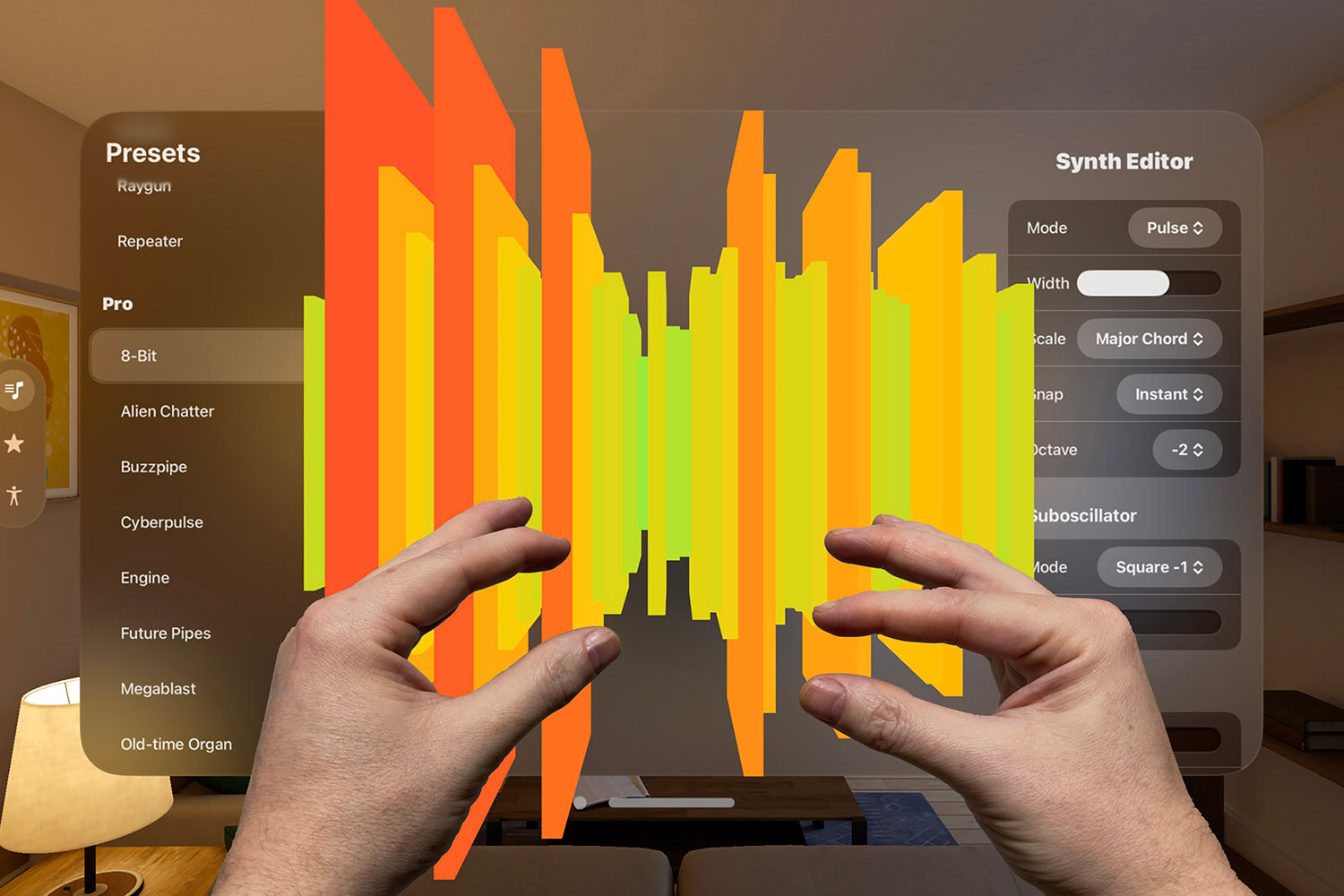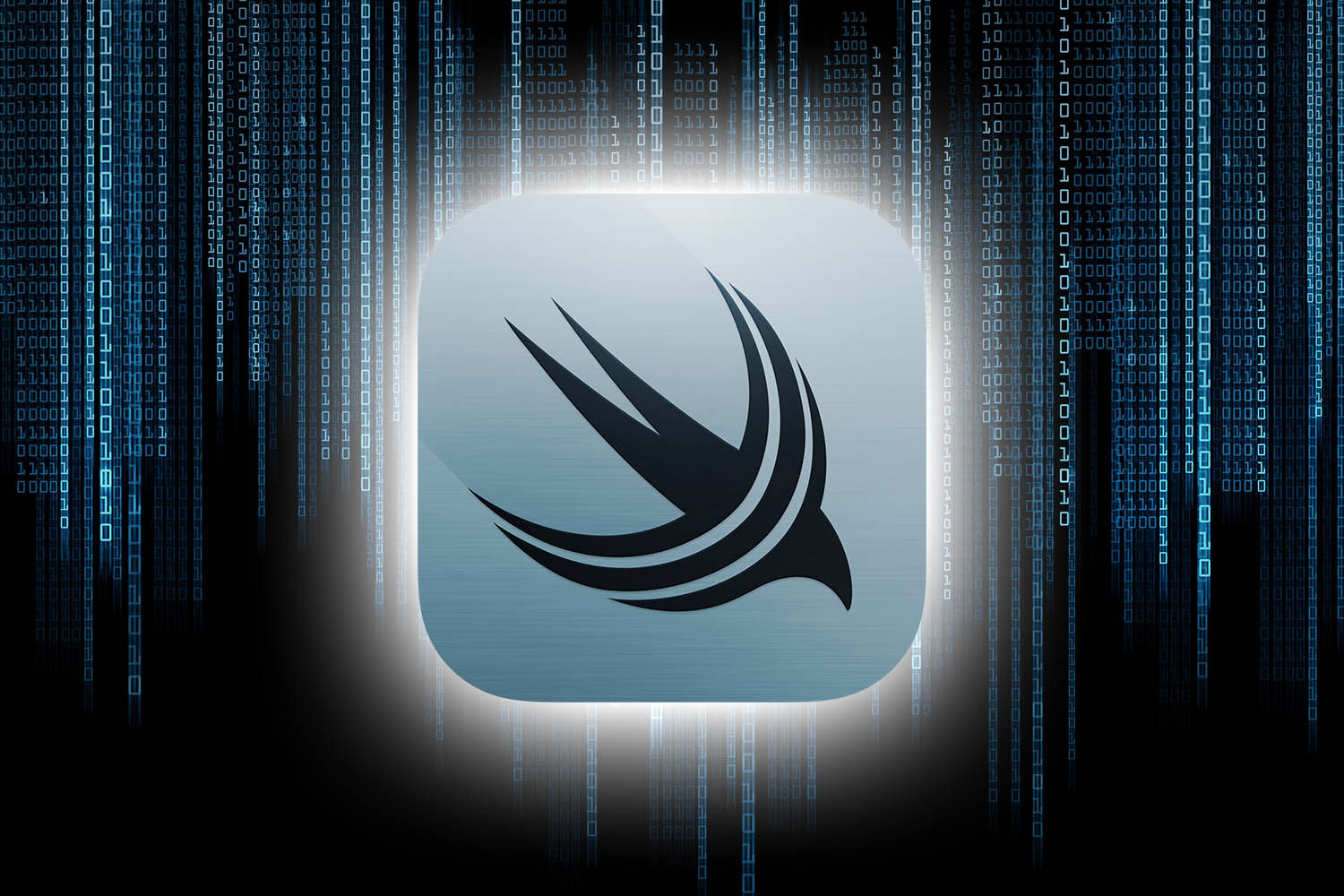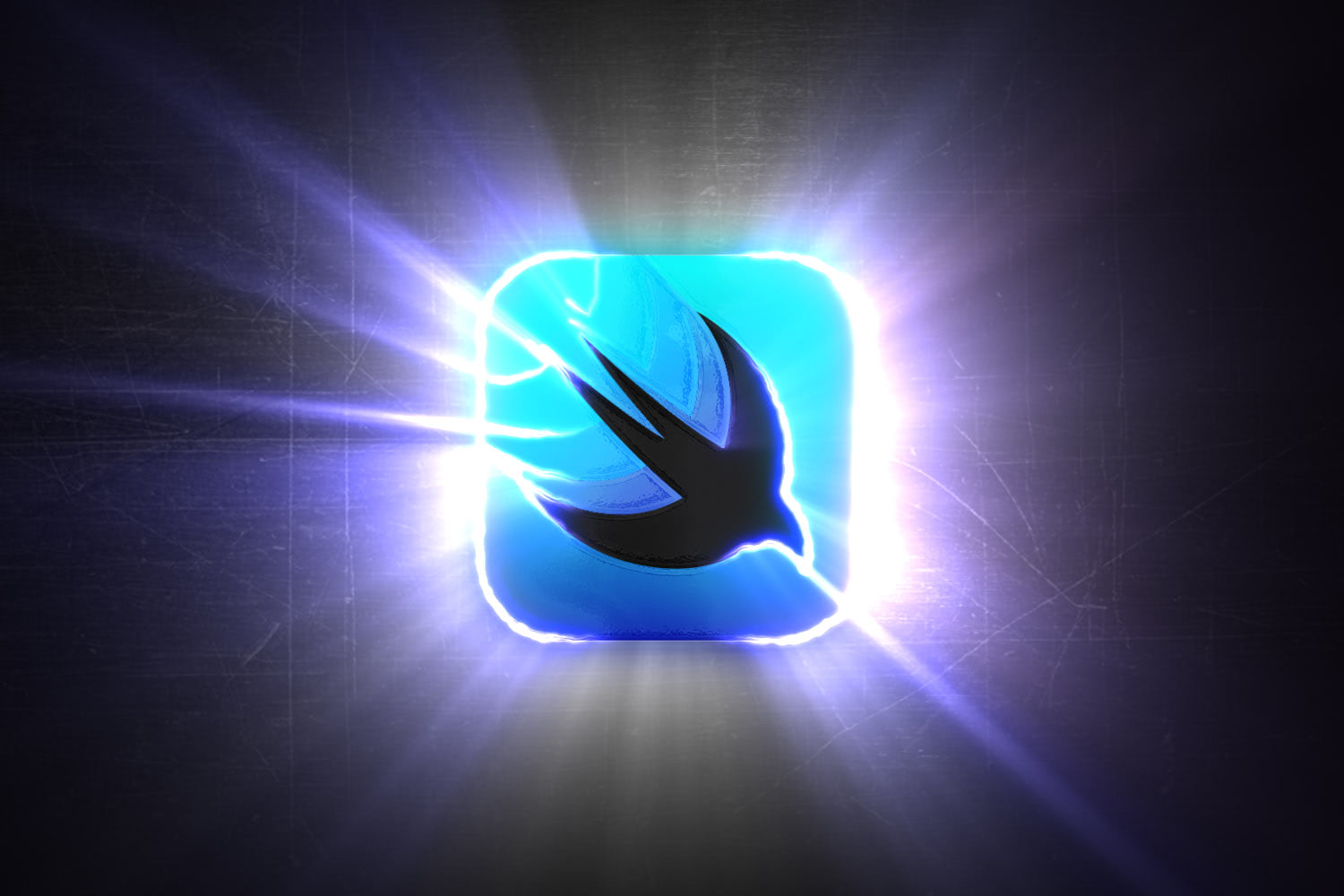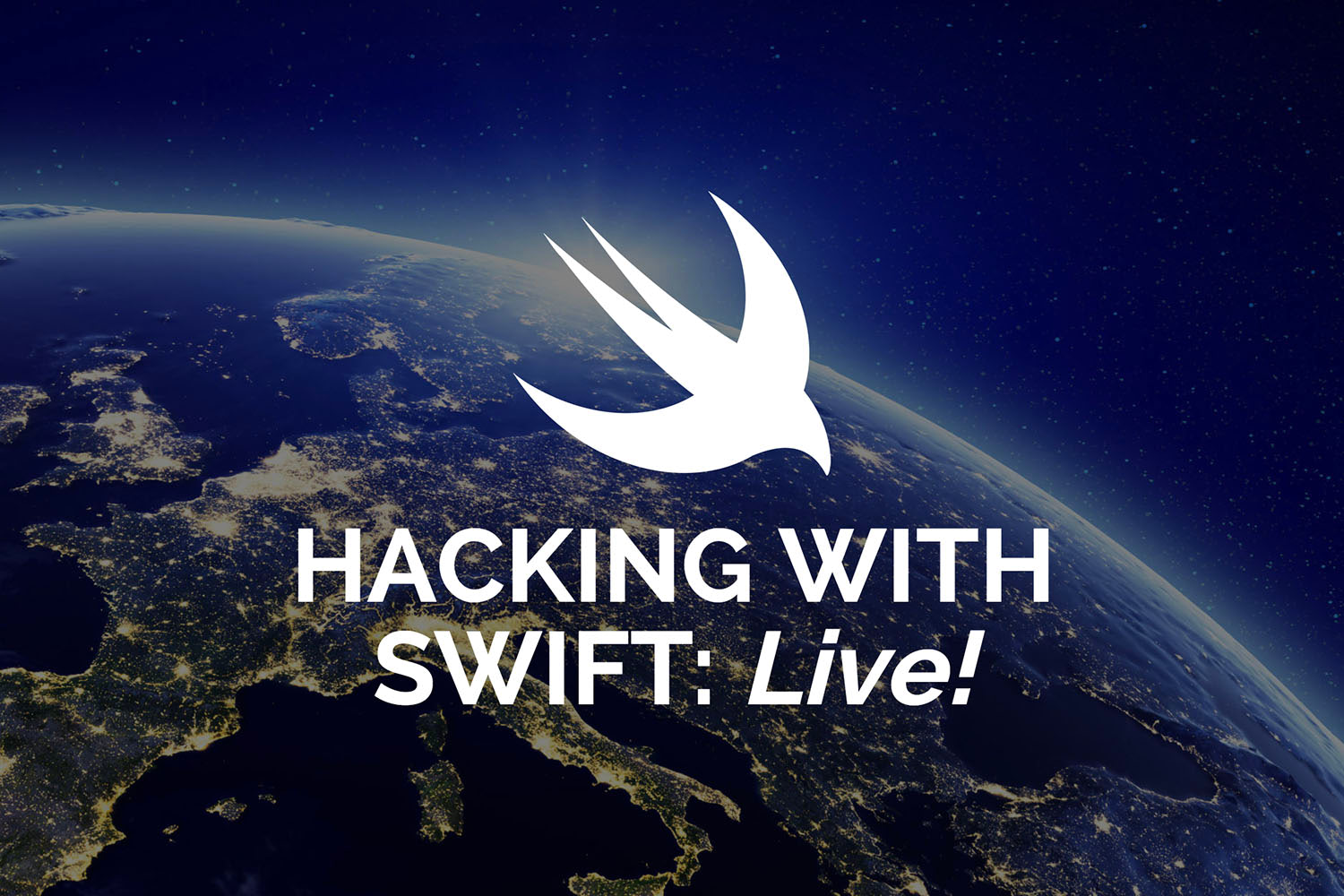How to organize a great programming conference
Finding speakers, locations, and a unique approach
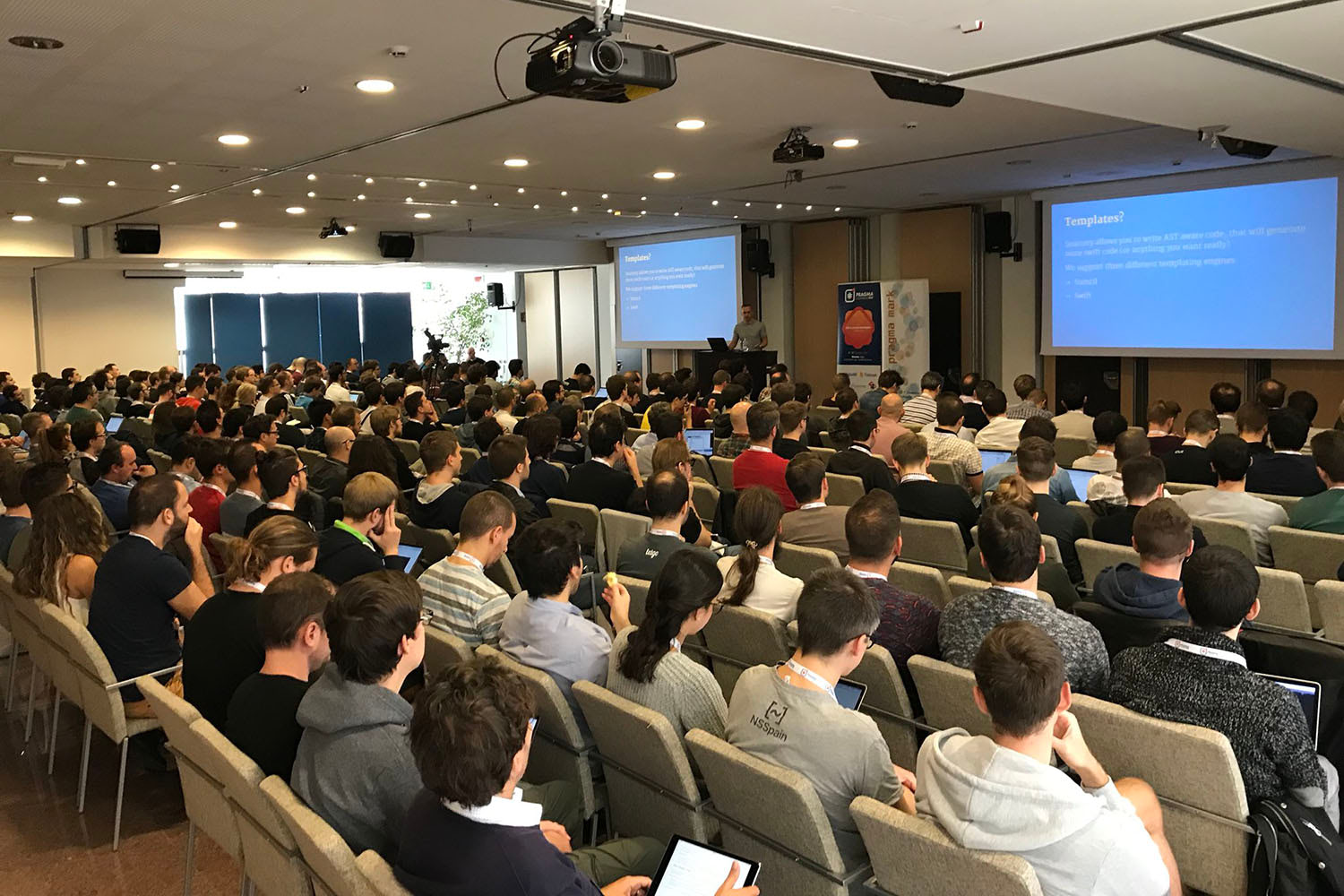
A few weeks ago I wrote about how to deliver a talk at a programming conference, and I wanted to follow that up with an article from the opposite perspective: how to organize a great programming conference.
So, I got in touch with some friends who organize fantastic conferences around the world, and asked them for their views: what makes a great talk proposal, what steps should organizers take to help attendees get the most from the event, and more.
I’m grateful to the following for their help in producing this guide:
- Junior Bontognali from App Builders and Swift Alps
- Ivo Jansch from Appdevcon
- Sylvain Zimmer from dotSwift
- Chris Price from iOSDevUK
- Solomon Klein from NextDoor
- And both Niels Van Hoorn and Sidney De Koning from Swift Island
Let's dive straight to the first question…

SPONSORED Join a FREE crash course for mid/senior iOS devs who want to achieve an expert level of technical and practical skills – it’s the fast track to being a complete senior developer! Hurry up because it'll be available only until April 28th.
Sponsor Hacking with Swift and reach the world's largest Swift community!
What makes a proposal stand out during the call for papers (CFP) process?
A common problem of CFPs is the massive number of submissions about trending topics.
App Builders: Well, we just moved away this year from the classic form to a 180-second video. This pushed down the number of submissions by two-thirds, but undoubtedly raised the quality.
A common problem of CFPs is the massive number of submissions about trending topics. For example, a couple of years ago we had a lot of submissions about reactive programming and functional programming, and this year it was about Machine Learning. This makes the selection pretty hard to pick, especially when the only thing you know about the person is a quick bio or what they writes on the Twitter feed. So, sometimes it’s really easy just to pick someone that already gave that talk at another conference.
Appdevcon: In our opinion a great proposal is brief (since we have to review many), but still very clearly defines the topic. It’s also great if the angle of approach is clear, for example is it a best practices sessions based on lessons learned, is it a beginners guide, is it an in-depth talk, is live coding involved.
This doesn't have to be in the abstract itself – in our CFP we tend to ask for 2 fields: one with the abstract as the visitor would read it, and one with remarks for the CFP committee. If conferences offer this option, use that opportunity to bring points across that may not be apparent from the abstract itself.
Also, very important: investigate the conference you are submitting to. If you haven't been to a previous edition yourself, have a look at past schedules or other info you can find to help you know your target audience. We try to make it very clear that developers are our primary audience, yet every year we get a few proposals directed at managers.
dotSwift: Because we have so few slots on stage, we tend to feature already established and respected speakers, whom we usually invite. Still, a few proposals in the CFPs are accepted for each conference, and we mainly select based on the proposed abstract. We look for proposals that are distinctive, well articulated and backed by the own experience of the speaker.
iOSDevUK: It is mostly personal - my first test is something that I am interested in. There are also topics that I know people are discussing a lot that I might not be interested in.
When we get a submission from someone who’s active in the community, kind, and concerned with helping others to improve their craft, that person stands out.
NextDoor: We don't do a Call For Papers for our events and instead work primarily by invitation and/or recommendation, but on occasion we do get session submissions. One of the first things that makes a submission stand out to us is the presenter. We strive to maintain a welcoming, friendly, and safe learning environment at our events, conducive for rapid information transfer, and our speakers play a big part in that. When we get a submission from someone who’s active in the community, kind, and concerned with helping others to improve their craft, that person stands out.
What steps do you take to help attract a diverse range of speakers and topics?
App Builders: We do a lot of scouting and also try to go to other conferences to meet new potential speakers. I used to be speaker myself before switching sides – I personally spoke at mDev, UIKonf, Mobiconf, etc, so this helped a lot in creating a great entry point and a list of speakers for an event organized by me.
Honestly, we don’t do extreme things. We try to balance as much as possible on topics and diversity in general, but we don’t like hardcore approaches such as allocating specific slots to reach the goal – it’s more a natural flow.
Appdevcon: What we do is to bring the CFP to the attention of user groups and communities. We also have a code of conduct on our site that may help people decide whether or not they want to submit. We arrange travel and hotel, but also pick up speakers from the airport, all to lower the stress a speaker might experience when traveling to a conference.
Hopefully this also helps diversity, as some groups might experience more stress than others, and we try to make it as comfortable as we can for everyone. But I wouldn't say we have found the holy grail, I think our conference could be more diverse, so we're thinking about more proactively engaging with the community to improve diversity.
We have seen a strong correlation between attendee satisfaction and lineup diversity so it's always on top of our minds when curating a conference.
dotSwift: We always make sure that each batch of invites we send is very diverse, not just regarding gender but also age, background, origin, topics, and more. We have seen a strong correlation between attendee satisfaction and lineup diversity so it's always on top of our minds when curating a conference. We also created the Fellows program to increase the diversity of attendees.
iOSDevUK: I do a general call; most years very few women respond to this. A lower proportion even than the proportion of women in the industry. I prompt some of the women that I know of in the industry who can talk about the things I mentioned earlier, and about 50% of them tend to say yes in any given year.
NextDoor: First, as mentioned previously, we strive to create a friendly, welcoming, and safe place where people can come to learn and to meet nice people with similar interests. Second (since we don't have a call for papers), we keep an eye open for interesting people in the space who are doing great things. We also reach out to our good friends in the community for recommendations. Some of our best speakers were "discovered" in this way.
Swift Island: Look at other conferences, people on Twitter or other media that stand out and you think will be capable of giving a talk. Try convincing diverse first-time speakers – people in your community that you think can give a talk and just approach them. They might need some convincing, but great talks can come from first-time speakers, with enough practice and mentorship. Also, check the #cfpwomen sheet: http://bit.ly/cfpwomen.
What would you say are the key priorities to help attendees have a great time?
App Builders: Networking, networking, networking – that’s the most important part. Great talks are definitely in the second place, but the most important thing for an attendee is to leave the event with a bunch of new people in the contact list and potentially a connection to one of the speakers if they are maybe using a framework that has been mentioned on stage.
After that I would say food and snacks (and coffee) are a good component. Bad food makes people annoyed, but great food or too much food makes people sleepy after lunch, so the balance has to be carefully evaluated. Also allergies and food preferences have to be considered.
A venue and atmosphere that fosters creativity and allows people to easily mingle and get inspired by speakers and by other attendees
Appdevcon: All the people in our crew are conference visitors themselves, and we are representative of our own target audience. So when we organize Appdevcon we try to do all the things that we would love to see at conferences.
But what does that mean in practice? In the first place, we need great content. Second is a venue and atmosphere that fosters creativity and allows people to easily mingle and get inspired by speakers and by other attendees. Third is ensuring that everyone has a great time by getting all the details right, such as lunch, beverages, equipment etc. We specifically choose a cinema as a venue because of the atmosphere, the comfy chairs (I just don't like conferences that use these standard chairs that you can't properly sit on for a few hours), big screens and the atmosphere.
dotSwift: I'd say the top priority is awesome talks, but high up is the social experience at the conference. Attendees love to meet new people and get a feel of the current state of the community. Finally, swag is always surprisingly popular!
iOSDevUK: You have to have good talks as that is externally what we came for. We put a lot of weight on cakes (or is that that the cakes put a lot of weight on). We have reasonable length breaks both so that people can talk, and to give them a rest from sitting down. We switch between single-track and two-track so that people do move around and mingle. We have short talks so that anyone who wants to can contribute, and we have social events (get-togethers, conference dinner, hacks) that allow people to mingle.
NextDoor: Easy access to speakers and subject matter experts. Opportunities to meet other people who are excited about the same things as you. It’s things like this that are hard to reproduce in a podcast.
Swift Island: Long breaks, lots of socializing time, and extra events outside of the conference. We looked at all the other conference we've attended and wanted to provide an experience without all the hassle you run into.
One of our key priorities for our attendees was to be “hassle free.” Most conferences we attend are abroad and when you're in a different country and have to find timetables with different public transport companies, walking around in an unknown country with all your luggage, it's all extra hassle you don't actually want to deal with.
So we made sure attendees from abroad can get a “hassle-free travel ticket”: we arrange everything for you – all your tickets and so on. We even pick you up from the ferry and drive you to the conference. Another thing we did in our communication is promote the event location – the island and its surroundings, as well as what can you also do in that area.
What would you say makes your conference stand out from others?
App Builders: For Swift Alps it’s definitely the format, which is also spreading to other events around Europe. For App Builders I think the mixed tracks are still a way to meet people that otherwise you would never meet. I like to have a chat with Android engineers and to exchange point of views on common topics, of course on iOS conferences this is not possible. On the other side I also understand that two tracks can generate some troubles around which track to pick, but I think having two mixed tracks helps to drive down the conflict risk.
There's so much you can learn from seeing that all platforms struggle with similar problems.
Appdevcon: One thing that we try to do differently is to cater to 'app developers' and not ‘Android developers' or 'iOS developers'. There are enough conferences where you can go for a specific platforms, but there aren't many that mix the platforms. For the past seven years this has been our angle, and people enjoy it.
There's so much you can learn from seeing that all platforms struggle with similar problems. It's also very useful to see how the other platforms tackle those problems. The concept of being multi platform, combined with a non-typical venue (a cinema) gives Appdevcon it's identity.
What we really value is the trust of attendees who come back regularly expecting the best from us. Consistency is underrated!
dotSwift: For a successful event everything has to go mostly right. If one aspect goes wrong or very wrong, it will be what people remember in the end. I think some aspects like being in Paris, the TED format or the glamorous venues make us stand out but what we really value is the trust of attendees who come back regularly expecting the best from us. Consistency is underrated!
iOSDevUK: Aberystwyth is a great safe place that makes a conference much more relaxed than if it was in say, London. The price is the other thing - because we get the venue free, we can put on a conference with lots of speakers for a price that wouldn’t be possible if you had to cover venue and organizer costs. Our price with three nights accommodation is about the same as many three-day conferences where you still need to pay for your accommodation.
NextDoor: We actually run a few conferences in the Apple developer space (Swift by Northwest, NextDoor, and Yosemite). Three things you'll find at all three events are amazing presenters, great sessions, and really friendly people. Sometimes, we even go to exotic locations like the Pacific Northwest, Yosemite National Park, and the San Jose drainage canal.
There was a point where we were sitting in the car looking at each other and saying “this is it, we have to host it here.”
Swift Island: We have a unique location, a workshop format, and an intimate setting, all in one location. Since our conference is on an island, we actually spent a weekend doing location scouting. We made a shortlist with locations that seemed really nice and adhered to our criteria. There was a point where we were sitting in the car looking at each other and saying “this is it, we have to host it here.” You know that moment when it all clicks. And don't forget seals. Real life seals – and not the military kind!
What advice would you give to someone who is considering running their own event?
Big cities and big conferences are good, but conferences in small locations like NSSpain are unique in so many levels.
App Builders: Don’t do it unless you are prepared to spend a lot of time. If you do it on free time, consider starting at least eight months in advance.
After this initial premise, then we need more events in more different locations, outside big cities and with more niche communities. Big cities and big conferences are good, but conferences in small locations like NSSpain are unique in so many levels it’s really difficult to measure how cool they are.
The most important thing to consider is to make sure you already have a network: start going to conferences, approach speakers and ask them about your plans – get as many as names as possible, always considering fallbacks.
Then start lean, with a low target (150-200 people) and plan accordingly. Approach some potential venues and get an idea about the costs: venue, catering and speakers’ hotel. These three are the biggest costs, on top of that add a good 40% for travel expenses, goodies and emergency costs and calculate the ticket price based on that.
Sponsors might be required, so start approaching them as soon as possible. You already need a venue at least reserved and some speakers to give some examples, then usually a couple of calls would already define if the thing is going to happen or not. Also consider poking some other local conferences and ask them for advice about costs, mostly to try to anticipate issues as much as possible. The rest should come from imagination and creativity – there’s no limit in improving a conference as format.
Visit a few different ones, note what you like and don't like, and then try to do it better.
Appdevcon: A very specific tip: At my very first conference (11 years ago, the Dutch PHP conference) I noticed that when we were about to start, a significant group of people was late because of train troubles. I suggested we delay the first session a bit, but my mentor back then – Cal Evans, a conference organizing veteran – resolutely said, “no, whatever happens, stick to the schedule.”
We've always tried to uphold this and it works. If you stick to the schedule, only the people that are late might miss a (part of a) session. If you delay, your schedule is in ruin for the rest of the day, people don't know to trust the schedule, room changes get chaotic if one session was delayed and the others weren't, so if at all possible: stick to the schedule.
More generally: look at what you love in conferences, as an attendee. Visit a few different ones, note what you like and don't like, and then try to do it better. Make your conference a “best practices” conference based on all the things you love in other conferences. Of course every conference has something that makes it unique and it's hard (and rude I might say) to simply copy those elements, but in the practical execution there are always things you can learn.
I'd rather shut down everything than be forced to accept sponsored talks for instance.
dotSwift: My first advice would be to understand your audience and what they are looking for. It is obviously a huge help to be a part of the target audience yourself, because then you will get good intuitions on most decisions. The second one would be to always stay true to your values. I'd rather shut down everything than be forced to accept sponsored talks for instance. If your event isn't financially sustainable then try to change some parameters but don't compromise on core values.
iOSDevUK: Get community buy-in. The first year we ran, people like Dave Verwer, Dave Addey, Martin Pilkington and Daniel Tull were really supportive in suggesting other speakers, and that meant that we had a great set of speakers to get the conference off to a strong start.
Start small. Expect things to go wrong.
NextDoor: Start small. Expect things to go wrong. You will freak out on multiple occasions. But it tends to work out in the end, and it's very rewarding. My favorite bit about running these events is that we get to bring together people who care about the same things and wouldn’t otherwise get to meet each other.
Swift Island: Try to get the majority of your speakers locally. This saves a lot of travel costs and makes your conference more feasible quicker. Then make a good budget – get price offers from everything you want to do. This was a big part of our decision process as to whether we could do things or not. That way you know if you have budget for those "wild ideas" to make it even more special.

SPONSORED Join a FREE crash course for mid/senior iOS devs who want to achieve an expert level of technical and practical skills – it’s the fast track to being a complete senior developer! Hurry up because it'll be available only until April 28th.
Sponsor Hacking with Swift and reach the world's largest Swift community!



















